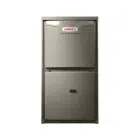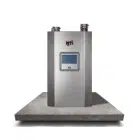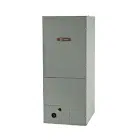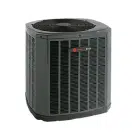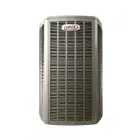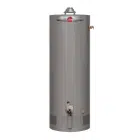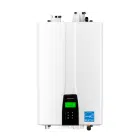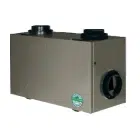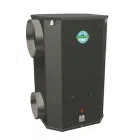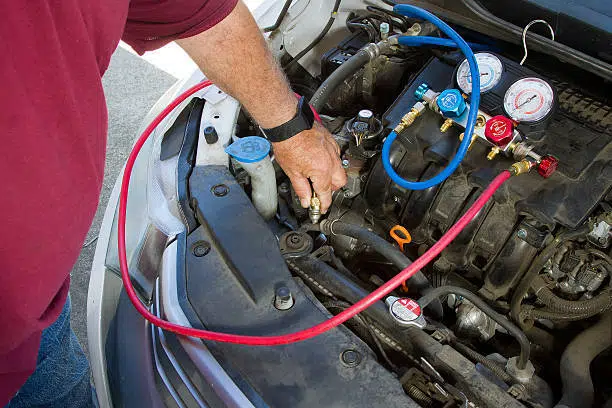
Table of Contents
- Why a Garage Gas Heater is the Upgrade You Didn’t Know You Needed
- What’s Your Type? The Different Kinds of Garage Heaters
- The Features You Didn’t Know You Needed
- What’s It Gonna Cost? Understanding the Price Range
- Installing Your Heater: The Professional Touch
- Safety First: What You Need to Know
- Conclusion
- FAQ
Winter is coming, and for many Canadians, that means the garage turns into an icebox. Whether you use your garage as a workshop, a home gym, or just a place to tinker, you need a garage gas heater that can keep up with the harshest conditions. That’s where a gas heater comes in. But with so many options out there, how do you choose the right one? Don’t worry—we’ve got you covered. This guide will walk you through everything you need to know to find the perfect gas heater for your space.
Why a Garage Gas Heater is the Upgrade You Didn’t Know You Needed
Let’s face it—Canadian winters are no joke. Electric heaters might be fine for a small room in your house, but they often fall short in a large, drafty garage. Garage gas heaters, on the other hand, are built to perform when the temperature drops below freezing. They’re powerful, efficient, and capable of heating large spaces quickly. Plus, they’re often more cost-effective in the long run because they use less energy to produce more heat. If you’re tired of working in a freezing garage, a gas heater is a game-changer.
The Features You Didn’t Know You Needed
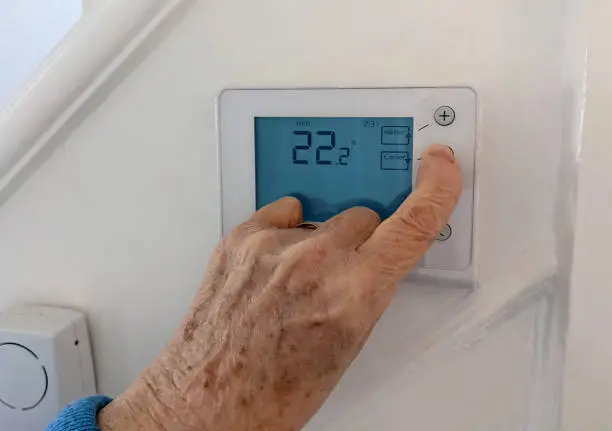
When choosing a gas furnace for your garage, it’s easy to get overwhelmed by all the specs and features. But here are the ones that really matter:
BTU Rating
This tells you how powerful the garage heater is. The higher the BTU, the more heat it can produce. To figure out how many BTUs you need, consider the size of your garage. For a typical two-car garage, a heater with 30,000 to 50,000 BTUs should do the trick. If your garage is bigger or not insulated, you might need something more powerful.
Thermostat Control
A good thermostat is like a set-and-forget feature. It allows you to maintain a consistent temperature without constantly fiddling with the heater. Look for models with digital thermostats that offer precise control over the heat output.
Safety Features
Garage gas heaters are incredibly safe if installed and used correctly, but it’s always better to be safe than sorry. Look for heaters with automatic shut-off features that kick in if the unit overheats or tips over. Some models also have oxygen depletion sensors that will turn off the heater if the air quality becomes unsafe.
Ventilation
This is crucial. Garage gas heaters produce carbon monoxide, so proper ventilation is a must to keep your garage safe. Depending on the type of heater, you might need to install a vent to the outside. Some heaters are vent-free, but they still require good air circulation to operate safely.
Find out if you can run the heater continuously in your garage and how it might impact your bills by checking out the article.
What’s It Gonna Cost? Understanding the Price Range
The price of a gas heater can vary widely depending on its type, size, and features. Here’s a rough breakdown:
- Budget-Friendly Models: These heaters typically cost between $200 and $400. They might lack some of the bells and whistles of more expensive models, but they’re perfectly adequate for heating small to medium-sized garages. If you’re on a budget but still want reliable heat, this is where to look.
- Mid-Range Heaters: In the $400 to $800 range, you’ll find heaters that offer a good balance of power, efficiency, and features. These models often come with digital thermostats, more advanced safety features, and better build quality. They’re a great choice if you want something reliable that won’t break the bank.
- High-End Options: For $800 and up, you’re looking at heaters with top-of-the-line performance and features. These are designed for larger garages or those who spend a lot of time in their garage during the winter. You’ll find models with ultra-precise temperature control, ultra-quiet operation, and robust safety features. While the upfront cost is higher, these heaters can save you money in the long run by being more energy-efficient and requiring less maintenance.
Find out if you can run the heater continuously in your garage and how it might impact your bills by checking out the article.
Category | Price Range | Features |
|---|---|---|
Budget-Friendly Models
| $200 – $400 | Ideal for small to medium-sized garages. These heaters are basic but reliable, offering adequate heat without many extra features. |
Mid-Range Heaters
| $400 – $800 | Offers a balance of power and efficiency. Includes digital thermostats, advanced safety features, and better build quality. A solid choice for most garages. |
High-End Options
| $800 and up | Top-of-the-line performance for larger garages. Features ultra-precise temperature control, quiet operation, and robust safety features. More energy-efficient and durable. |
Installing Your Heater: The Professional Touch
Now, let’s talk installation. While it’s tempting to save a few bucks by doing it yourself, we highly recommend professional installation for garage gas heaters. Installing a gas furnace for your garage isn’t as simple as plugging in an electric one. It involves connecting to your home’s gas line, ensuring proper ventilation, and possibly making electrical connections. A professional will ensure that your heater is installed safely and meets all local codes and regulations. Plus, a pro can help you choose the best location in your garage for maximum efficiency.
If you’re a seasoned DIYer and determined to tackle the installation yourself, make sure you do your homework. Read the manufacturer’s instructions carefully, and don’t cut corners—especially when it comes to ventilation and safety measures.
Do you need a professional heater installation for your home in Ontario? Don;t hesitate to contact HVAC Service Solutions via the link below.
Keeping It Running Smoothly: Maintenance Tips
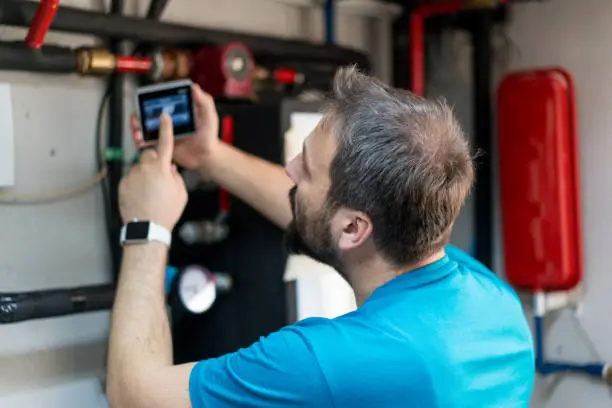
A gas furnace for your garage is an investment, and like any investment, you want it to last. Regular maintenance is key to keeping your heater running efficiently and safely. Here are some tips:
- Annual Inspection: Before the cold weather hits, have your heater inspected by a professional. They can check for any issues, clean the unit, and make sure it’s ready to keep your garage warm all winter long.
- Clean the Filters: If your heater has air filters, clean or replace them regularly. Dirty filters can reduce efficiency and increase the risk of overheating.
- Check the Venting: Make sure the vents are clear of obstructions like snow, ice, or debris. Blocked vents can lead to dangerous carbon monoxide buildup.
- Listen for Unusual Noises: If your heater starts making strange sounds, it could be a sign of a problem. Don’t ignore it—get it checked out by a professional.
Monitor the Pilot Light: Keep an eye on the pilot light. It should burn a steady blue flame. If you notice it flickering or turning yellow, this could indicate an issue with the burner or ventilation. Addressing this early can prevent bigger problems down the line.
Lubricate Moving Parts: Your heater’s moving parts, such as the fan or motor, need occasional lubrication to function properly. Check the manufacturer’s recommendations and apply lubricant as needed. This simple step can prolong the life of your heater and improve its efficiency.
Seal Any Leaks: Inspect the gas line connections and ductwork for any leaks. Even small leaks can lead to energy loss and reduced efficiency. If you suspect a leak, call a professional immediately to repair it. Never attempt to fix gas lines on your own.
Test the Thermostat: Ensure your thermostat is working correctly by testing it periodically. If it’s not responding or maintaining the desired temperature, it could be faulty. Replacing or recalibrating the thermostat can help your heater operate more efficiently.
- Keep It Clean: Dust and debris can accumulate on your heater, especially in the garage. Regularly wipe down the exterior and ensure the area around the heater is free of clutter. This prevents blockages and keeps the heater running efficiently.
Safety First: What You Need to Know
When using a gas heater, safety is paramount. These heaters are powerful, but they come with risks that you need to manage carefully.
Ventilation is Non-Negotiable
Proper ventilation is critical to prevent carbon monoxide buildup, a colorless, odorless gas that can be deadly. Even vent-free heaters need good airflow. Always ensure your garage has a clear path for air to flow in and out, and if your heater requires an external vent, make sure it’s installed correctly and remains unobstructed. Consider cracking a window or leaving the garage door slightly open while the heater is running.
Clear the Space
Garage gas heaters get hot, so it’s essential to keep flammable materials like gasoline, paint, and cardboard far away. Maintain a three-foot radius around the heater free of anything that could catch fire. Place the heater on a stable, non-flammable surface to avoid accidental ignition.
Install Carbon Monoxide Detectors
Carbon monoxide detectors are a must-have in any space with a gas heater. Install them near the heater and in adjacent rooms, and regularly test them to ensure they’re working. Replace batteries twice a year and the detectors every five to seven years.
Never Leave it Unattended
Always turn off your heater when you leave the garage, even if it’s just for a short break. Unattended heaters can malfunction, leading to fires or carbon monoxide buildup. It’s a simple rule that can prevent serious accidents.
By following these safety tips, you can enjoy the warmth of your garage heater without worry.
The best HVAC companies stand out by prioritizing customer satisfaction. Look for a provider that takes the time to assess your specific needs and offers tailored solutions. A personalized approach indicates that they value your business and are committed to delivering the best results.
Conclusion
Don’t let the winter chill keep you out of your garage. With the right gas heater, you can turn your garage into a warm, comfortable space where you’ll actually want to spend time, no matter how cold it gets outside. From forced-air powerhouses to silent convection heaters, there’s a perfect solution out there for you. And with a little help from the experts, you can find the right heater, get it installed safely, and keep it running efficiently for years to come.
Ready to make the upgrade? Contact us today to learn more about our selection of garage gas heaters and how we can help you keep your garage warm this winter.
Frequent Asked Questions
What size gas heater do I need for my garage?
The size of the gas heater you need depends on your garage’s size and insulation. To determine the right size, you’ll need to calculate the BTUs (British Thermal Units) required to heat the space. As a general rule, you need about 30,000 to 50,000 BTUs for a typical two-car garage. For larger or poorly insulated garages, you may need a heater with higher BTUs. A heating professional can help you perform a detailed calculation to ensure you choose the correct size for efficient heating.
Are garage gas heaters safe to use?
Yes, garage gas heaters are safe when used correctly. However, safety depends on proper installation and maintenance. Ensure your heater is installed by a professional, follow the manufacturer’s guidelines, and maintain proper ventilation to prevent carbon monoxide buildup. Regularly inspect the heater for any issues and install carbon monoxide detectors to enhance safety. Always keep flammable materials away from the heater and never leave it unattended.
How do I install a garage gas heater?
Installing a garage gas heater involves connecting it to your home’s gas line, ensuring proper ventilation, and possibly making electrical connections. It’s crucial to follow the manufacturer’s instructions and local building codes. Due to the complexities involved, including handling gas lines and ensuring safe ventilation, it’s best to hire a licensed professional for installation. They’ll ensure everything is set up correctly and safely, reducing the risk of future problems.
Can I use a garage gas heater in a well-insulated garage?
Yes, a garage gas heater can be used in a well-insulated garage. In fact, a well-insulated garage will help the heater operate more efficiently by retaining heat longer. This means you might need a heater with a lower BTU rating compared to an uninsulated garage. Even with good insulation, proper ventilation is still necessary to ensure safety and maintain air quality.
What maintenance does a garage gas heater require?
Regular maintenance is key to keeping your garage gas heater running efficiently and safely. This includes annual inspections by a professional to check for any issues and clean the unit. You should also clean or replace air filters regularly, check for and clear any blockages in the vents, and listen for unusual noises that might indicate problems. Additionally, ensure the heater is properly lubricated and keep the area around it free from dust and debris.
How do I know if my garage gas heater needs repair?
Signs that your garage gas heater may need repair include inconsistent heating, strange noises, or a pilot light that flickers or turns yellow. You might also notice a decrease in efficiency or a sudden increase in energy bills. If the heater is not operating as expected or if you smell gas, turn it off immediately and call a professional. Regular maintenance and early detection of issues can prevent more serious problems and costly repairs.
Are there energy-efficient options for garage gas heaters?
Yes, there are energy-efficient options available for garage gas heaters. Look for models with high Annual Fuel Utilization Efficiency (AFUE) ratings, which indicate how effectively the heater converts fuel into heat. Energy-efficient heaters often have features like improved insulation, better heat exchangers, and advanced controls that help reduce energy consumption. While these models may have a higher upfront cost, they can save you money in the long run by reducing your energy bills.
What are the benefits of using a garage gas heater over an electric heater?
Garage gas heaters typically offer several advantages over electric heaters. They are generally more cost-effective for heating large spaces because gas is often cheaper than electricity. Gas heaters also provide more heat quickly and efficiently, making them better suited for larger or poorly insulated garages. Additionally, gas heaters can be more energy-efficient for extended use, whereas electric heaters can become expensive if used frequently.
Can I use a gas heater if my garage is attached to my home?
Yes, you can use a gas heater in an attached garage, but there are additional considerations. Ensure that the garage has proper ventilation to prevent any dangerous gases from seeping into your home. Install carbon monoxide detectors in both the garage and adjacent rooms to monitor air quality. Proper installation and maintenance are crucial to prevent any potential hazards. A professional can help ensure that your setup meets safety standards and regulations.
How long does a garage gas heater typically last?
The lifespan of a garage gas heater can vary depending on its quality, usage, and maintenance. On average, a well-maintained gas heater can last between 15 to 20 years. Regular maintenance, such as annual inspections and cleaning, can extend its life. If you notice frequent issues or significant drops in performance, it might be time to consider a replacement. Investing in a high-quality heater and following proper maintenance routines can help you get the most out of your unit.
Share

